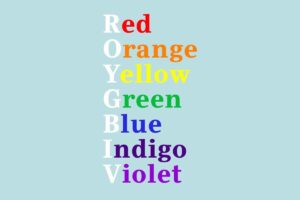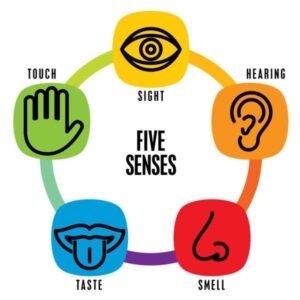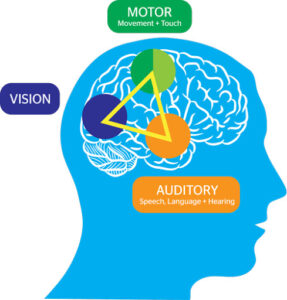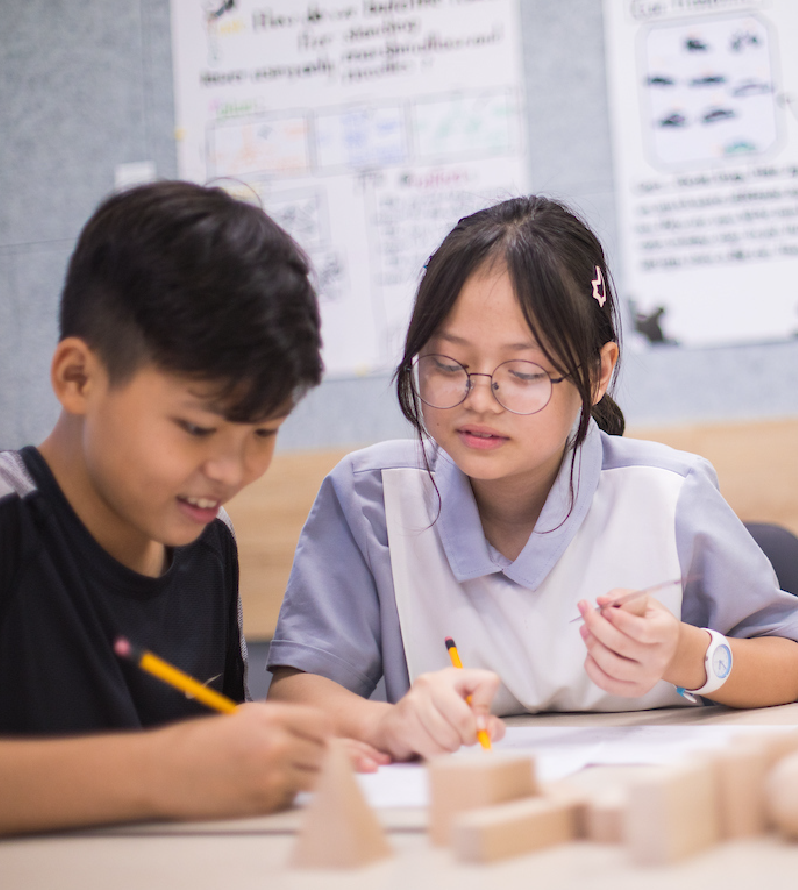Before exams, particularly major ones, it holds immense significance for children to allocate their focus towards revising their lessons and equipping themselves with effective memorization skills. However, the ability to memorize certain lesson content can prove to be quite challenging without the implementation of proper techniques.
The process of memorization involves more than just rote repetition; it requires active engagement and the utilization of various mnemonic devices and memory-enhancing methods. Hence, it becomes crucial to determine the most suitable learning style for your child. This serves as the cornerstone for them to identify effective learning methods and apply them to their future self-study endeavors. Undoubtedly, when children are able to find a learning style that resonates with them, they will memorize their lessons better. Hence, it is crucial for parents to assist their children in identifying the most appropriate learning methods for them to the best of their abilities.
Now, the question arises: How can your child make the most out of their revision time in the days leading up to the test?
We invite you to delve further into this article and explore a wealth of valuable insights! By continuing to read, you will uncover a comprehensive compilation of 5 essential tips that are poised to empower your child in their exam preparation, enabling them to revise with utmost effectiveness and stride confidently towards success in their upcoming significant examinations. The guidance provided within these tips will equip your child with the necessary tools and strategies to navigate the revision process efficiently, ensuring they make the most of their study time and optimize their performance during these crucial assessments.
 1. Devote an hour each day to reviewing the material
1. Devote an hour each day to reviewing the material
A small tip for quick and profound understanding of lessons is to spend an hour each day reviewing notes, exercises, and revision materials. By forming this habit, your child will establish their own revision routine and identify areas of misunderstanding in the lessons, allowing them to seek help from teachers and friends to clarify doubts. This method also ensures early exam preparation, minimizing the risk of forgetting crucial knowledge and ensuring readiness for all exams.
2. Deepen understanding through visualizing knowledge
Numerous studies suggest that visual aids can help students memorize specific information better. Therefore, students can try incorporating images or illustrative symbols into the lesson content or link them with different terms during revision to facilitate easier retention.

For example, in a study, students were asked to memorize three vocabulary words: “dog,” “bicycle,” and “street.” One group of students attempted to memorize by repeatedly reciting the words, while another group tried to visualize real-life images associated with those words, such as imagining a dog riding a bicycle on the street. The results showed that the group using visualization techniques had significantly better memorization ability.
Where learning meets joy
with friends and teachers who care
3. Master difficult material using Mnemonics
“Mnemonics” is a method of learning by creating associations that make memorization easier. A notable feature of this method is that students can remember a large amount of information by using representative cues, which can be a word, memory, story, picture, abbreviation, song, dance, or anything relatable to the learner.
One mnemonic technique is the “acronym rule”. This method uses abbreviations that represent the initial letters of the words to be memorized. The resulting word may or may not have meaning, but it guarantees that the learner can easily remember all the words in order.
To illustrate, “ROYGBIV” is an example of a popular mnemonic for remembering the colors of the rainbow:

Red
Orange
Yellow
Green
Blue
Indigo
Violet
Or
The qualities of a scientist can be remembered with the acronym PIPOC:
Perseverance
Intelligence
Patience
Originality
Curiosity
4. Engage multiple senses during study sessions
Merely reading and looking at the material is not enough to help your child memorize new information. Instead, encourage your child to read aloud while studying. Concepts and important information will be more easily absorbed. Your child can also:
– Listen to recorded lectures related to the lesson while reading the corresponding material
– Recite or paraphrase what they are reading or memorizing using body language


The more exposure your child has to the lesson through different senses, the longer-lasting impression they will have. Following the principles below will help your child effectively combine different senses:
- You remember about 10% of what you read.
- You remember about 20% of what you hear.
- You remember about 30% of what you see.
- You remember about 50% of what you hear and see together.
- You remember about 70% of what you say.
- You remember about 90% of what you do.
(Excerpt from the book: “Everything You Need To Know About Learning” by Ann Algier)
5. Transforming class sessions into small quizzes
Using flashcards or creating related puzzles is an excellent way for children to start. The aim is to help them discover how to remember information on their own rather than simply memorizing it, thus facilitating the recall of important details on exam day.
Here are some ways for children to get started:
- Quickly jotting down answers on flashcards before flipping them over
- Creating a practice quiz without any nearby reference materials
- Formulating questions that may appear on the quiz and answering them

This article has provided families with some effective study tips. Study effectively, understand deeply, and retain knowledge for a long times are the goals of all students before planning for any exam. Confidence will be boosted if children have a solid grasp of the subject matter, and the remaining task is to equip them with exam-taking skills.
At Everest Education, we offer after-school support programs to help children overcome difficulties in the revision process and provide them with comprehensive knowledge and skills for upcoming quizzes and important exams. Additionally, students are given early preparation through mock exams, allowing them to become familiar with the exam structure, assess their current abilities, and derive valuable lessons for the actual test.
References:
Achieve success in examinations
Study skills test: Memorizing Important Facts
Strategies for exam success
Cải thiện từ vựng tiếng Anh bằng thuật ghi nhớ Mnemonics



 1. Devote an hour each day to reviewing the material
1. Devote an hour each day to reviewing the material



















